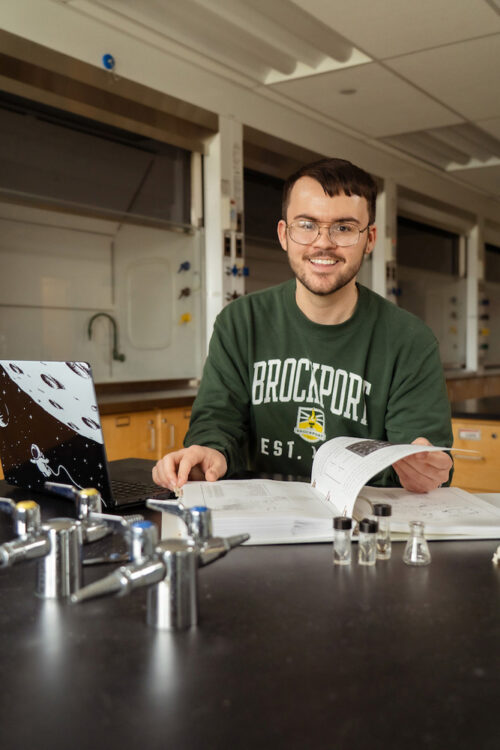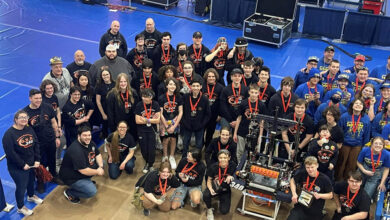SUNY Brockport student awarded prestigious Department of Energy fellowship

The Department of Energy’s (DOE) Computational Science Graduate Fellowship seeks students pursuing doctoral degrees in fields that use high-performance computing to solve complex science and engineering problems. When he applied, chemistry major Troy Smith felt the chances were slim that he would receive the coveted fellowship, as he was up against applicants from top universities including Princeton, Stanford, Harvard, and more.
“Less than 700 people have received the fellowship since it was established in 1991,” Smith said. “You are going up against the smartest people in the country. To be chosen as an undergraduate from a small public university is almost unheard of.”
After graduation, Smith will enter the doctoral program at the University of Georgia to research advanced combustion systems, including low-temperature combustion. The research will focus on the development of quantum reaction models with Associate Professor, Brandon Rotavera. After reviewing Smith’s application, Rotavera encouraged him to apply for the fellowship since their research aligns with the fellowship’s goals.
After months of waiting, Smith received a phone call on Scholars Day that would change his life.
“I was rolling up my poster after presenting at Scholars Day when I got a phone call from a random number. At first I thought it was spam,” Smith said. “It ended up being someone from the DOE to congratulate me. My heart was beating out of my chest and I literally jumped up off my feet.”
As part of the fellowship, Smith receives a $45,000 annual stipend, full payment of his tuition and fees at the University of Georgia, a $1,000 stipend to attend professional development conferences around the world, and a 12-week DOE laboratory practicum experience where he will work alongside prestigious scientists from around the world.
“You need to tell the DOE exactly what they are spending their money on for the next four years, down to what courses you are taking and how they help your research,” Smith said.
While Smith now looks set on pursuing a career in research, he initially attended another university with the intention of becoming a pharmacist. It wasn’t until he transferred to SUNY Brockport that he found his passion for research.
“At my previous institution I felt like I was paying my tuition, showing up to class, and getting good grades, but nobody encouraged me to go beyond,” Smith said “At Brockport, I was treated like a colleague. I was given respect and freedom to try new things. Here, I felt like a collaborator.”
Smith joined the Honors College after transferring, which required finding a thesis advisor. After looking into his options, he chose Professor Markus Hoffmann whose research utilizes computational science, which involves developing software that can help progress scientific inquiries.
Smith and Hoffmann are researching how polyethylene glycol might function as a clean chemical solvent. Specifically, what is happening at the molecular level and what might hinder or facilitate a reaction.
“It could take a human from now until the heat death of the universe to calculate a single second of this data,” Smith said. “That is why we use the computers, and we can still only get a few picoseconds of data. It takes about two weeks to get a millisecond of data with less than 50,000 atoms in a simulation.”
Smith’s research with Hoffmann laid the foundation for his future research at the University of Georgia and played a key role in his application process for the fellowship, paving the way for his path beyond SUNY Brockport.
“Brockport has been one of the best things to ever happen to me,” Smith said. “While I’m sad to leave the community, I am excited to move on. I am ready for the next step.”
Provided information and photo



